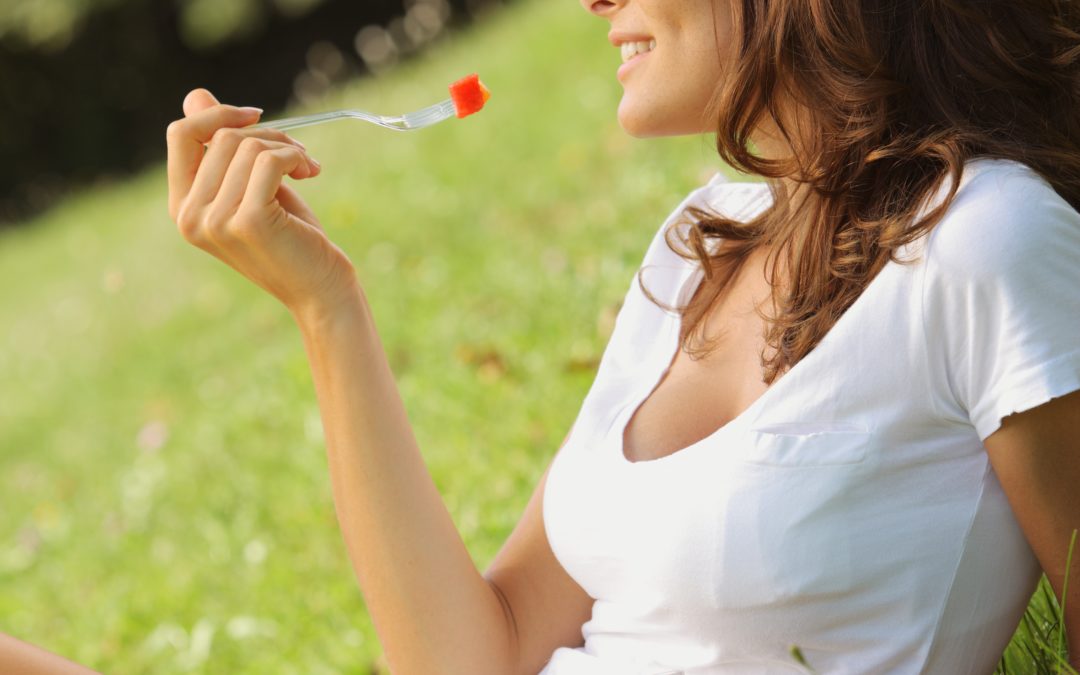Yes, while I always say that it’s better to get your nutrients from food first sometimes supplements are necessary.
Unfortunately there are just some all-too-common nutrients that we simply don’t get enough of. And they’re absolutely critical to optimal health and wellness. Especially as we age.
Here I sifted through the supplements that are available on the market and boiled them down to three that can have the best effect for us.
Supplement #1: Vitamin D
If you live in North America chances are you are low in vitamin D. It’s the “sunshine vitamin” and we just aren’t able to hang out in shorts every day of the year. Even if we did we’d wisely use a bit of sun protection too.
Vitamin D is very important for everyone but especially women over 45. Want to know why?
It helps to protect our bones!
Vitamin D helps our body absorb and keep the calcium we get from our food and drinks. And we all know that calcium is one of the main things our bones are made of.
Want to know something funny about vitamin D (but it’s true, I swear)?
People who get enough vitamin D tend to fall less frequently. Especially as we get older.
Seriously!
Vitamin D can help your bones stay strong and help you fall less. Win-win!
Supplement #2: Magnesium
Magnesium is an essential mineral needed for over 300 reactions in your body.
Yes, 300!
As with vitamin D it’s very common for us to simply not get enough. Not even the 320 mg per day that’s recommended.
Low levels of magnesium have been linked to high blood pressure, diabetes, low bone density, and even migraines.
Magnesium is found in so many healthy whole foods like beans, nuts, seeds and green leafy vegetables. In fact, the magnesium element is central to a plant’s chlorophyll – it’s actually what causes green plants to be green! And most of us just don’t get enough green plants into our bodies on a regular basis. (You know I have a recipe with green leafies for you below, right?).
Magnesium is a very common supplement and is often added to multivitamins.
Supplement #3: Omega-3s
We’ve all heard that we need to get more omega-3 essential fatty acids, right? They’re good for our hearts, brains, and help to reduce inflammation.
These are all good things when it comes to our health and wellness.
But not all of us are ready, willing, and able to eat fish three times per week.
While fish oil supplements contain the “brain healthy” fats called EPA and DHA, those two are not technically the “essential” fats. The plant omega-3 known as ALA is essential and that is because our bodies can convert ALA into EPA and DHA when necessary.
Omega-3 supplements can be found in forms of flax oil, algae oil, fish oil, or even fish liver oil.
Pro Tip: Fish liver oil (e.g. cod liver oil) also contains vitamin D so check your labels and add the amounts together to know how much vitamin D you’re actually getting.
Conclusion:
Three supplements to consider now that you’re 45 are: vitamin D, magnesium, and omega-3s.
Always read the supplement labels to see if there are warnings that would make them inappropriate for you. And, of course if you have any medical conditions or take medications or other supplements it’s always a good idea to speak with your doctor before starting anything new.
I have created a recipe for you that contains the three key nutrients you might need now that you’re 45 years old. I think you’re going to like it!
Recipe (Vitamin D, Magnesium & Omega-3s): Salmon Quinoa Buddha Bowl
Serves 2
4 cups baby spinach
1 cup quinoa (cooked)
1 can wild salmon
2 tablespoons sesame seeds
½ red onion (diced) (optional)
2 tablespoons sesame oil
2 tablespoons rice vinegar
1 tablespoon lemon juice
dash salt and pepper
Split spinach, quinoa, wild salmon, sesame seeds, and onion (if using) between two bowls.
Mix sesame oil, rice vinegar, and lemon juice together and pour on top of prepared Buddha bowls.
Add salt and pepper to taste.
Serve & Enjoy!
Tip: When looking for canned salmon try to get the ones with the most vitamin D and make sure cans are BPA-free. Good quality canned fish is usually in the “natural foods” section of many large groceries.
References:
https://authoritynutrition.com/11-natural-menopause-tips/
https://examine.com/supplements/Vitamin+D/
https://ods.od.nih.gov/factsheets/Magnesium-Consumer/
https://ods.od.nih.gov/factsheets/Omega3FattyAcids-HealthProfessional/


